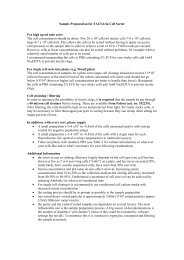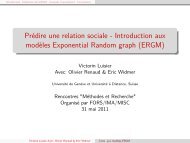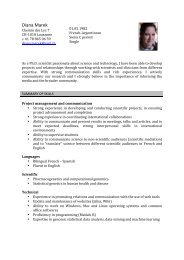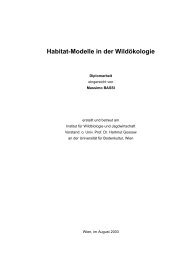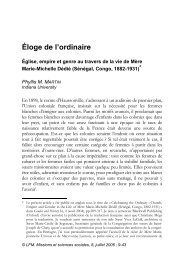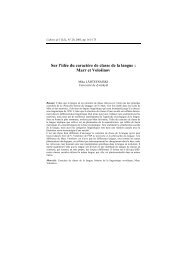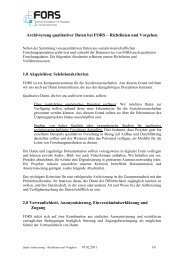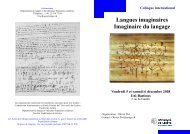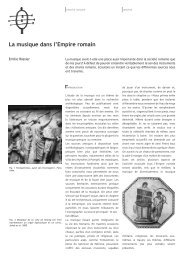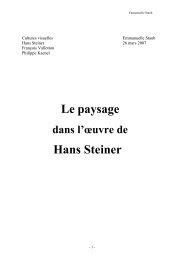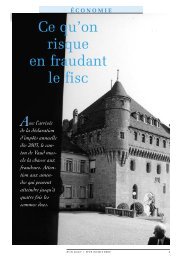conference programme book - European Survey Research ...
conference programme book - European Survey Research ...
conference programme book - European Survey Research ...
Create successful ePaper yourself
Turn your PDF publications into a flip-book with our unique Google optimized e-Paper software.
THURSDAY 21 JULY 123the paper is to present the lessons learned using the CIRF to report a mixed-method validaon study of a”family funcon” scale. The scale consists of 5 items in a rang scale format with 3 response opons. 21cognive interviews were performed during the cognive pre-test of the ”family funcon” scale. Moreover,28371 people responded to the Spanish version of the APGAR scale included in a naonal health survey. Theiranswers were used to analyse basic psychometrics which were computed comparing groups defined by the”type of home” variable...3.6.3 The Cognive Interviewing Reporng Framework (CIRF): Incorporang the Principles of Qualitave<strong>Research</strong>H. Boeije 1 , G. Willis 21 University of Utrecht, Netherlands; 2 Naonal Instutes of Health (NIH), United StatesThe crux of this presentaon is that cognive interviewing as a way of pretesng quesonnaires is in essencea qualitave method. Although different techniques can be used in cognive interviews, such as think aloudand verbal probing, many of these are equivalent to those frequently used in the qualitave research field generally.Of course, cognive interviewing involves some unique elements. We begin with a comparison of theassumpons, purposes and current pracces in qualitave research with the pracce of cognive interviewing,to point out what they have in common and in what regards they differ.3.6.4 How Should Cognive Interviewing Reports be Wrien and Made Use of?G. Willis 2 , H. Boeije 11 University of Utrecht, Netherlands; 2 Naonal Instutes of Health (NIH), United StatesThe Cognive Interviewing Reporng Framework (CIRF) proposes to (a) increase coverage of the importantelements contained in Cognive interview reports; and (b) enhance the uniformity of presentaon in thesereports. These developments are expected to benefit the field of survey pretesng, by: (a) providing a frameworkthat leads researchers to consider how the pretesng work should be conducted in the first place, andto perhaps improve their pracces; (b) forcing report-writers to think through all the elements that shouldbe considered when wring reports; and (c) leading the survey pretesng field toward the producon of reportsthat are comprehensive enough, and similar enough, to be made use of beyond the original authors ororganizaon...3.7 Occupaon and Educaon variables for Comparave <strong>Research</strong>ersTo be held on July 21, 2011 from: 09:00 to 10:30, in room 321.Coordinated by: Eric Harrison - City University London, United Kingdom3.7.1 The use of cross-naonal survey data to operaonalise social classE. Harrison 11 City University London, United KingdomThe accurate measurement of occupaon is valuable not only in its own right, but also because it is one of thebasic pieces of informaon needed to derive many widely-used class schemas. In the context of cross-naonalresearch this also requires a high degree of harmonisaon across countries. Despite considerable efforts inthis direcon, users accept that a combinaon of instuonal differences and human error lead to less thanopmal validity. Thus however conceptually rigorous the class measure, it is likely to be operaonalised usingsurvey data that is frequently imperfect and always incomplete.3.7.2 Drop-out rates during compleon of an occupaon search tree in web-surveysK. Tijdens 1



